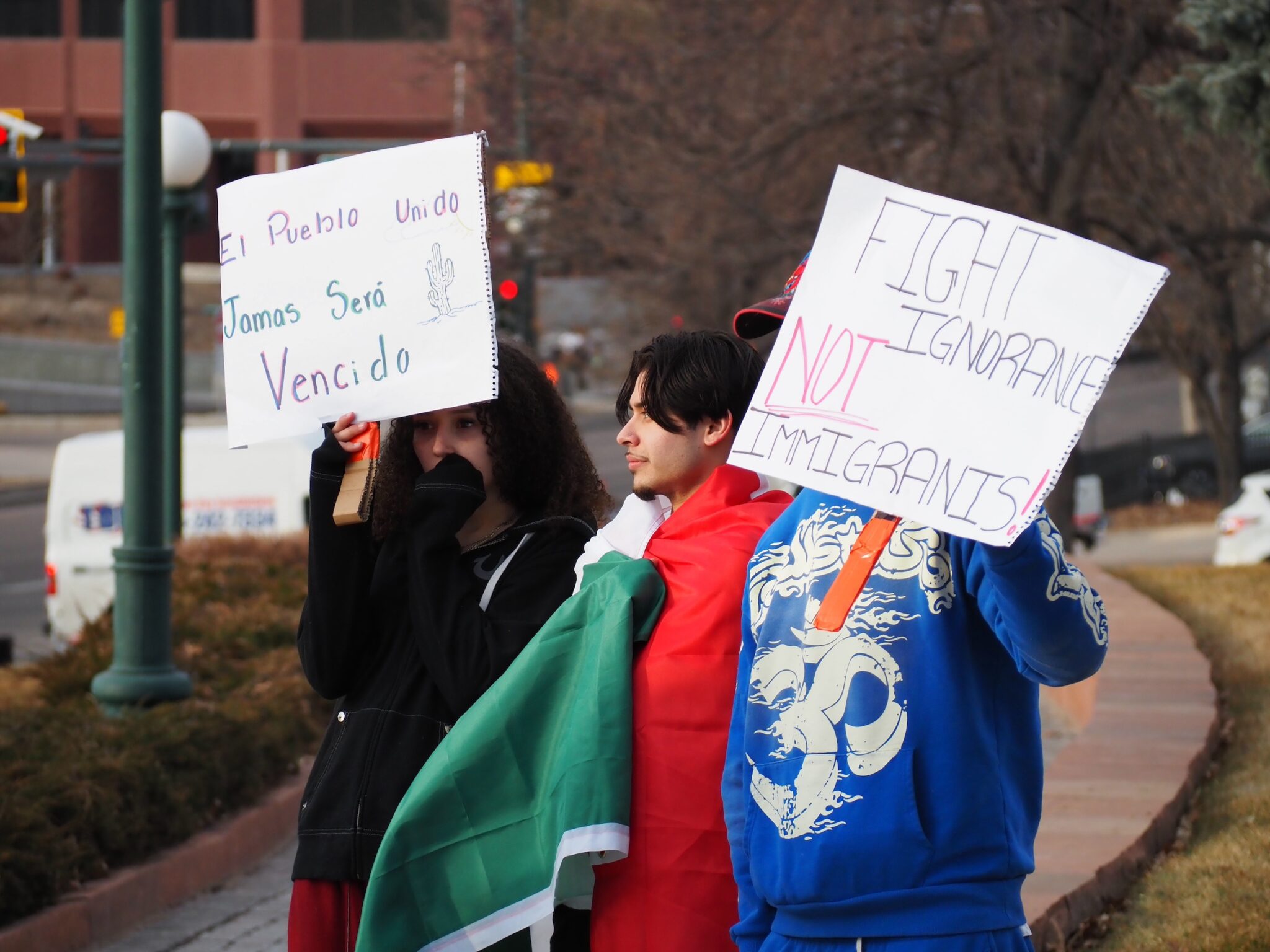In yet another move to up the ante of its anti-immigrant agenda, the Trump administration’s Department of Justice (DOJ) filed a lawsuit recently against Colorado and the city of Denver for allegedly obstructing federal immigration enforcement policies. The suit objects to sanctuary policies — local initiatives to protect immigrant communities from federal deportation efforts — and argues that such policies encroach on federal authority.

This move follows Donald Trump’s recent executive order instructing the DOJ to penalize sanctuary cities, including threatening to withhold federal funding. The lawsuit was filed in federal court in Denver and it states: “The United States has well-established, preeminent, and preemptive authority to regulate immigration matters.” It specifically mentions the controversial apartment complex in Aurora, which President Trump claimed last year had been taken over by a Venezuelan gang. Justice Department attorneys argue Colorado’s policies allowed Tren de Aragua to seize control of the building.
Local officials have called Trump’s claims that the gang had taken over large swaths of the city exaggerated, but acknowledged the apartment complex was terrorized, including by people linked to Tren de Aragua. In January, Trump signed an executive order designating Tren de Aragua as a terrorist organization and authorized the removal of hundreds of people — many without due process or evidence of gang ties — to a U.S.-funded concentration camp in El Salvador.
The DOJ lawsuit specifically targets several Colorado state laws and Denver municipal ordinances that the agency says “interfere with and discriminate against the Federal Government’s enforcement of federal immigration law.” Among these are HB19-1124, a 2019 law prohibiting state and local law enforcement from arresting or detaining people based solely on federal immigration detainer requests; SB21-131, which bars state employees from sharing personal identifying information with federal immigration agencies; and HB23-1100, a 2023 law that prevents local jails from contracting with federal immigration authorities to detain immigrants. Similarly, Denver’s city policies also restrict cooperation with Immigration and Customs Enforcement (ICE), barring local officials from assisting ICE without a court order and denying ICE access to secure jail facilities.
The suit asks the court to rule that those laws are illegal and a violation of the Supremacy Clause of the U.S. Constitution and lists Gov. Jared Polis, Colorado Attorney General Phil Weiser, Denver Mayor Mike Johnston and Denver Sheriff Elias Diggins as defendants.
A spokesperson for the governor’s office responded to the lawsuit, saying they “will not comment on the merits of the lawsuit” but declared that Colorado is not a “sanctuary state.”
“The State of Colorado works with local, state and federal law enforcement regularly and we value our partnerships with local, county and federal law enforcement agencies to make Colorado safer. If the courts say that any Colorado law is not valid then we will follow the ruling,” the spokesperson said.
A Denver mayor’s office spokesperson released a comment as well, saying the city “will not be bullied or blackmailed, least of all by an administration that has little regard for the law and even less for the truth.” It went on to say that “Denver follows all laws local, state, and federal and stands ready to defend its values.”

In March, Johnston traveled to Washington, D.C., to testify before the House Committee on Oversight and Government Reform about the city’s policies regarding undocumented immigrants. Republican representatives grilled Johnston and mayors of Boston, Chicago and New York and said the cities’ policies of not handing over such people who are picked up for crimes are putting police at risk and the general public as well.
This DOJ lawsuit comes as lawmakers in Colorado actively seek to boost protections for immigrant communities. Early this month, the Colorado House passed Senate Bill 25-276, which prohibits local officials from sharing personal immigration data with ICE and restricts ICE access to public spaces like schools, hospitals, and libraries without a warrant. Officials who deliberately violate the data sharing provision of the bill could be fined $50,000, which would be used by Colorado’s immigration legal defense fund.
The Department of Justice has filed similar lawsuits against Chicago and Rochester, New York.
The bill has been hailed by various observers as one of few that is really taking seriously the crisis that the federal administration poses for immigrants in particular and for marginalized people generally. The bill would also prevent local sheriffs from delaying a person’s release from jail for the purpose of immigration enforcement, get rid of certain affidavit requirements for immigrants seeking in-state tuition or a drivers license, and allow immigrant defendants to ask that a guilty plea is overturned if they were not aware of immigration consequences of that plea when they made it.
Democrats framed the bill as a response to the Trump administration’s mass deportation efforts and increased detentions of immigrants without legal status, which they said are often imposed without the due process the bill tries to protect.
Republicans naturally have argued that the bill could provoke the Trump administration to target Colorado and withhold federal money. They also claim that democrats in Colorado’s legislature have been emotional in their arguments regarding the matter and would rather see them employ logical engagements that don’t jeopardize Colorado’s future.

The bill will be sent to the desk of Democratic Gov. Jared Polis, whose record on immigration rights has often been criticized as inadequate.
In February, several local governments across the U.S. filed a lawsuit against the Trump administration over its crackdown on cities with sanctuary city policies. The president signed an executive order earlier this week calling on the Justice Department to investigate sanctuary cities that don’t cooperate with the Trump administration’s immigration policies in an effort to withhold federal funding from them.
There is no strict definition for sanctuary policies or sanctuary cities, but the terms generally describe limited local cooperation with Immigration and Customs Enforcement. ICE enforces U.S. immigration laws nationwide but seeks state and local help, particularly for large-scale deportations, and requests that police and sheriffs alert ICE to people it wants to deport and hold them until federal officers take custody.




